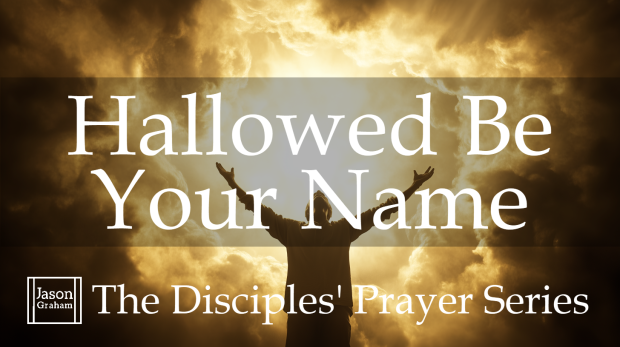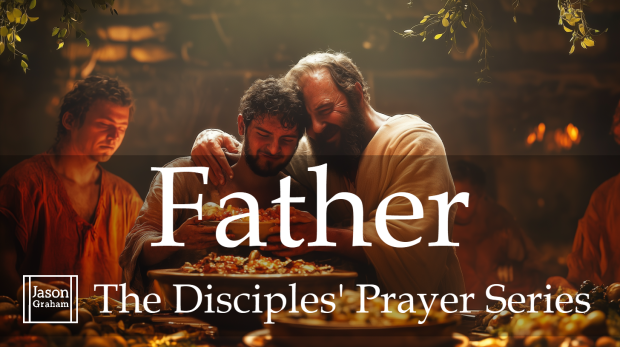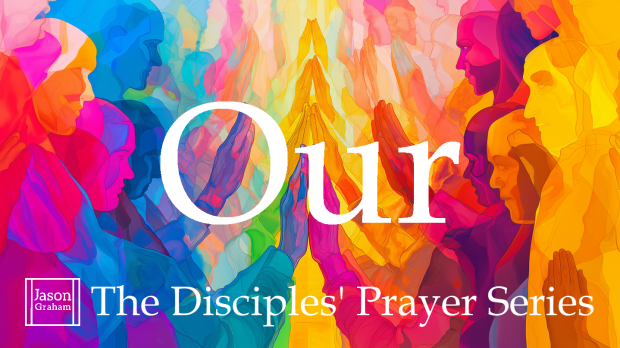Audio Coming soon.
2025.06.01_JasonGraham_TDPS_HallowedBeYourName.pdf Download
The Disciples’ Prayer Series – Part 4
When Jesus taught His disciples to pray, He didn’t just tell them to address the Father—He added “Hallowed be Your name.” This phrase is more than an acknowledgment of God’s holiness—it’s a call to action.
What Does “Hallowed” Mean?
At first glance, one might think Jesus was simply stating a fact: “Father, Your name is holy.” But holiness is an adjective—hallowed is a verb. The Greek word hagiazó means to sanctify, set apart, and consecrate. Jesus was teaching us that we have a role in honoring God’s name.
Why Acknowledge His Name as Holy?
God is not just holy—He is thrice holy. When Isaiah and John both glimpsed the throne room of heaven, they heard the seraphim crying out: “Holy, holy, holy is the Lord God Almighty.” This repetition wasn’t redundant—it was a proclamation that one “holy” isn’t enough to describe God’s fullness. It’s been sung for thousands of years—and if we were face-to-face with Him, we’d be singing it too.
The Name Above Every Name
But what name are we setting apart? Philippians 2:9-11 tells us: “God exalted Him to the highest place and gave Him the name that is above every name—so that at the name of Jesus, every knee should bow.” This isn’t about language—whether it’s Jesus, Yeshua, Lord, Adonai, Jehovah—it’s about the One who bears the name.
How Do We Hallow God’s Name?
The Bible gives us three primary ways to set His name apart:
- Do not profane His name
- To profane means to make common—to treat God’s name as ordinary instead of holy.
- This includes misusing His name, swearing falsely by it, or using it for manipulation or control.
- Praise and Worship Him
- Worship isn’t just singing—it’s recognizing God’s worth.
- True worship happens in Spirit and in Truth—not just routine actions, but a heartfelt response.
- Be Holy in Conduct
- When Peter quoted Leviticus “be holy, because I am Holy,” he explained that this means we are to “be holy in all we do.”
- As believers, we are a royal priesthood—our holiness reflects His holiness.
- We are made holy in nature by God, but holiness in conduct requires daily growth and surrender.
Holiness Is a Journey and a Destination
Being holy doesn’t mean perfection overnight—it’s a process of maturity. Jesus Himself said: “Be perfect, therefore, as your heavenly Father is perfect.” (Matthew 5:48) The Greek word teleios means complete, mature, unfolding—like a telescope extending stage by stage until it reaches full clarity. The Apostle Paul used the same root word in 2 Corinthians 7:1 when he told us to “perfect holiness out of reverence for God.” Both Jesus and Paul, by using this word, indicate a recognition that we are going through a process of maturity to reach an end goal.
Encouragement for the Journey
- Holiness is because of salvation—not a condition for it.
- It’s about loving God more than ourselves.
- Failure isn’t falling when we try—it’s failing to try.
- God enjoys us in our weakness—He knows our frame better than we do.
To hallow His name is to live in reverence, worship, and holiness—because His name is worthy.
Dive deeper into this truth through the full message, audio, and notes.










